Lifestyle Shifts That Support Anxiety & OCD Recovery: Diet, Sleep & Movement in AZ
You’ve probably heard it before—“Get more sleep. Eat better. Move your body.”
But when you’re living with anxiety or OCD, advice like that can feel… frustratingly vague. Or worse—overwhelming. Because when your brain is stuck in overdrive, even basic things like eating regularly or winding down at night can feel like impossible tasks.
You might be thinking:
"I know I should take better care of myself, but I’m already doing everything I can just to hold it together."
We get it - and you’re not failing. The truth is, anxiety and OCD wear down your system, making everyday self-care feel harder than it should be.
But here’s the good news:
You don’t need a perfect wellness routine. You just need to start small—with a few lifestyle shifts that support your recovery, calm your nervous system, and help therapy work better.
Let’s break down what actually makes a difference: how you sleep, what you eat, and how you move.
These aren’t “nice to haves” - they’re key players in healing your brain and body.
Sleep: The Quiet Powerhouse Behind Your Mental Health
When your mind is racing or stuck in obsessive loops, sleep is usually the first thing to go. But it’s also the first place to rebuild. Lack of sleep doesn’t just leave you tired—it increases cortisol, worsens intrusive thoughts, and makes it harder to manage emotions.
What Actually Helps:
Set a sleep/wake routine, even on weekends.
Try a low-stimulation wind-down routine—no scrolling, just music, dim lights, or a hot shower.
Cool down your sleep space—the Arizona heat messes with deep sleep. Keep your room around 65–68°F.
If your brain won’t shut off, try a body scan or grounding exercise to calm the nervous system.
You don’t need 10 hours of perfect sleep. Start with one better night. Consistency matters more than perfection.
People with consistent sleep and wake times experience better mood regulation and fewer symptoms of anxiety and depression, according to the American Academy of Sleep Medicine (2021).
Eat to Fuel Your Brain (Not Control It)
When anxiety or OCD is flaring up, food can become chaotic: skipping meals, overeating, obsessing over “clean eating,” or relying on caffeine to get through the day. But your brain—especially one in recovery—needs stable fuel.
Focus On:
Omega-3 fats (like salmon, chia seeds, walnuts): research links them to reduced anxiety and improved mood.
Protein + fiber + healthy fats in each meal: helps balance blood sugar, reducing emotional spikes and crashes.
Gut health: fermented foods or a good-quality probiotic can support mood regulation.
Water: sounds basic, but Arizona’s heat is dehydrating. Low hydration = brain fog and irritability.
Small shift: Add a smoothie with flax seeds and spinach to your morning. It’s not a fix-all, but it’s a move toward stability.
Research shows that omega-3 fats can reduce anxiety, while balanced meals with protein, fiber, and healthy fats help regulate blood sugar and mood; staying hydrated—especially in Arizona’s dry heat—is also key, as even mild dehydration can lead to brain fog and irritability (National Institutes of Health, 2022).
Move in a Way That Calms, Not Pressures
Forget “no pain, no gain.” When you're dealing with OCD or anxiety, the goal of movement is regulation, not intensity. You don’t need to force yourself into intense workouts. You just need to move enough to shift your nervous system out of fight-or-flight.
Try:
Walks in nature (yes, even early mornings before it’s 100° in AZ).
Yoga or stretching for mind-body reconnection.
Strength training 1–2x a week—research shows it helps ease anxiety.
Dancing around the house or taking short movement breaks between tasks.
5–10 minutes is enough to start. You’re not being lazy—you’re probably in freeze mode. Gently move your way out.
Even just 5–10 minutes of movement - like a morning walk, gentle yoga, or dancing in your kitchen - can help ease anxiety and shift your nervous system out of freeze mode; studies show strength training just 1–2 times a week significantly reduces anxiety symptoms (Harvard Health, 2021).
“But I’ve Tried This Before…”
Maybe you’ve tried going to bed early, drinking water, or adding greens to your diet—and still felt overwhelmed. That doesn’t mean lifestyle shifts don’t work. It just means they need to be part of something bigger—like therapy that addresses the roots of anxiety or OCD.
At BrainBody OCD Counseling, we believe in treating the whole person—not just the symptoms. We combine effective therapies like ERP, ACT, I-CBT, and somatic tools with lifestyle strategies that help your brain and body work together. And we support you every step of the way.
A Recovery Path That Makes Sense for Life in Arizona
Let’s face it - Arizona life is a unique mix. Blazing heat, busy routines, and long commutes can add extra stress, especially when your mental health is already stretched thin.
But Arizona also gives you sunlight, mountain trails, and a community of professionals who get it. If you’re ready to try therapy that focuses on sustainable healing - not just symptom management - we’re here.
Whether you’re in Scottsdale or elsewhere in the state, we offer in-person and virtual sessions across Arizona.
The Bottom Line: Recovery Is a Daily Practice
You don’t have to fix everything overnight. You don’t need a perfect schedule or the ideal meal plan. You just need a few anchors in your day that tell your brain:
“We’re safe. We’re healing. We’re moving forward.”
Start with sleep. Add a walk. Drink more water. Let therapy guide the rest.
And if you’re ready for a whole-person approach to OCD and anxiety recovery, reach out today for a free consultation.




